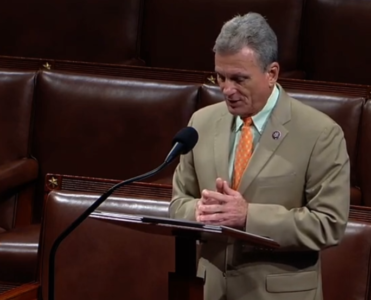Worms that wiggle, coin-flipping your demise, olfactory fix, and more
30 Sep 2021
Posted by Andrew Kantor
Stop and smell the War of the Roses
One of the more annoying effects of Covid-19 (i.e., as opposed to the really dangerous ones) is the loss of smell. Luckily, the University of East Anglia has a smell-loss expert, and he’s starting a study: Can vitamin* A return the sense of smell to those who have lost it?
Where did he get the idea? From German researchers, who found (in a small study) that vitamin A in nasal drops seemed to improve the sense of scent. He’s looking to see if it’s true.
* Pronounced VIH-ta-min
Today’s “That’s odd” moment
How do you know if a worm has Alzheimer’s? It doesn’t wiggle. (That’s not a joke — it’s actually how you can tell.)
A team at the University of Delaware was doing genetic research with C. elegans, when they noticed something odd: Worms in one Petri disk had Alzheimer’s, while worms in another didn’t. And they had no clue why. So they got a clue.
After years of research, the team finally turned up an important difference. While all the worms were grown on a diet of E. coli, it turns out that one strain of E. coli had higher levels of vitamin B12 than the other.
Before you rush to buy (or sell) B12, know the caveat: This only happened with worms that were already vitamin B12 deficient — “Giving more B12 to animals with healthy levels does not help them in any way.” But it’s certainly an avenue for research.
Buddy bids farewell to Jeff
Georgia Representative Buddy Carter honored outgoing AIP Director Jeff Lurey on the floor of the U.S. Congress Tuesday. Check out the video:
What’s with Covid and diabetes?
Two separate studies looked at an odd effect of Covid-19: diabetes. As in, an abnormally high number of people are diagnosed with it shortly after an infection.
It seems that the SARS-CoV-2 virus attacks the ACE2 protein on the surface on the pancreas — yep, that’s the same protein that it attacks in the lungs. Worse, an inflamed pancreas produces more ACE2, making it an even bigger target.
A bit of good news — it might only be temporary:
It is not yet clear whether the changes triggered by Covid infection are long lasting. “However, we know that some patients who had very unstable blood glucose levels when they were in the intensive care unit and recovered from Covid-19, some of them also recovered [glucose control], suggesting that not all patients will be permanent.”
Region meetings are here!
It’s like Christmas, Passover, Arbor Day, and Isaac Newton’s birthday all rolled together! That’s right: It’s time to sign up for your GPhA Fall Region Meeting!
Every one is like a tiny slice of heaven … but held in a restaurant in your area. The food is always great, the company (fellow pharmacists and technicians) is even better, and the hour of CE credit for attending is the icing on the cake. (Mmmm, cake.)
Find your region, find your meeting, and sign up today!
Antidepressants help break cancer’s defense
SSRIs, it seems, may slow cancer growth. Researchers at the University of Zurich found that “SSRIs or other drugs that lower peripheral serotonin levels can also slow cancer growth in mice,” likely because cancer cells use serotonin to protect themselves from killer T cells.
The hope is that an SSRI can be combined with an immune checkpoint inhibitor to attack tumors. And because these drugs are already approved for humans, clinical trials will be quicker to start.
New migraine treatment
AbbVie’s Qulipta* — a calcitonin gene-related peptide receptor antagonist (aka “gepants”) — received FDA approval for prevention of migraines. It will be available in the next couple of weeks.
* One of the rare times the generic name, atogepant, is easier to pronounce than the brand name.
May the odds be ever in your favor
Once you hit 110 years old, your odds of living another year are almost exactly 50-50*, assuming no new “hazards” enter your life — e.g., war, famine, pestilence. That’s what a new paper published by the Royal Society found after crunching a heck of a lot of data.
Or, to be more science-y about it:
[A] model with constant hazard after age 108 […] corresponds to a constant probability of 0.49 that a living person will survive for one further year, with 95% confidence interval.
And the really cool finding: “Power calculations make it implausible that there is an upper limit to the human lifespan of 130 years or below.”
* Technically you’ve got a 49% chance — the house always has an advantage.
Antibiotics don’t work for chest infections
Got a kid with a chest infection? Forget the amoxicillin. It doesn’t work — unless they have pneumonia. So say primary-care researchers at the University of Southampton. That infection is likely viral, so antibiotics won’t help. That’s not just common sense; that’s the result of the “Largest trial of antibiotic amoxicillin for treating chest infections in children.”
Elsewhere: Oh, God edition
The Vatican is requiring either proof of Covid-19 vaccination or a recent negative test result to even enter the city-state.



